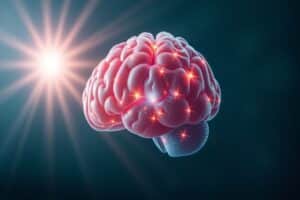A Comprensive Guide
Dementia is a term used to describe a group of conditions impacting memory, thinking, behavior, and ultimately a person’s ability to manage daily life. It’s a heartbreaking reality for both the person experiencing it and their loved ones. While there is no cure, recognizing early signs of dementia is critical for finding appropriate treatment and support.
What causes dementia?
Dementia occurs due to damage to brain cells, interfering with their ability to communicate. Various diseases and conditions can lead to this damage, with Alzheimer’s disease being the most common. Other causes include vascular dementia, Lewy body dementia, and frontotemporal dementia.
Early Warning Signs of Dementia: What to Look For
Recognizing potential dementia symptoms can be tough, as some changes might seem like normal aging. However, dementia goes beyond occasional forgetfulness. Below is a detailed look into common areas where early signs of dementia manifest:
1. Memory Loss Disrupting Daily Life
- Frequently forgetting recently learned information.
- Reliance on reminders or family for things typically handled independently.
- Repeating questions, conversations, or misplacing belongings.
2. Challenges in Planning or Solving Problems
- Difficulty following familiar processes like recipes or paying bills.
- Concentrating becomes harder, and tasks take much longer.
- Poor judgment or unusual changes in decision-making.
3. Confusion with Time or Place
- Losing track of dates, seasons, and the flow of time
- Struggling to understand events unless they occur right then.
- Forgetting where they are or how they arrived at a location.
4. Difficulty with Everyday Tasks
- Trouble with once-familiar activities like driving, using household items, or understanding rules of a favorite game.
5. Problems with Visual Understanding and Spatial Awareness
- Difficulty with reading, judging distance, or perceiving colors – potentially unsafe for driving.
6. New Challenges with Communication
- Struggling to find words in conversation or follow along.
- Using incorrect words to describe objects (e.g., “that thing for sitting” instead of “chair”).
- Repeating themselves frequently.
7. Misplacing Things and Inability to Retrace
- Placing items in unusual locations and being unable to find them.
- Accusations of theft may arise as memory loss progresses.
8. Poor Judgment or Decision-Making
- Neglecting personal grooming or wearing clothes unsuited to the weather.
- Uncharacteristic behavior regarding money, like giving away large sums or falling prey to scams.
9. Retreating from Social Life or Work
- Loss of interest in usual hobbies or social gatherings.
- Avoiding interactions due to difficulties they are experiencing.
10. Personality and Mood Swings
- Becoming easily confused, fearful, anxious, suspicious, or depressed.
- Unexpected emotional outbursts or rapid mood shifts.
Important Considerations:
- Not just aging: While some memory issues occur with age, dementia’s impact is more significant.
- Individual variation: Symptoms and their severity differ between people.
- Seek professional help: Don’t self-diagnose. If you notice several of these signs in a loved one, a doctor’s evaluation is key.
What Can You Do If You’re Concerned?
- Talk to them: Express concerns gently and respectfully. Offer to accompany them to the doctor.
- Observe and document: Note specific examples of concerning behaviors for the doctor.
- Provide support: Be patient and understanding. Reassure them that you’re there to help.
Getting a Diagnosis is Crucial
While a dementia diagnosis can be overwhelming, it opens doors:
- Understanding the condition: Clarity about the specific type of dementia.
- Treatment options: Medications and therapies can manage symptoms and slow progression in some cases.
- Planning for the future: Making informed decisions about care, finances, and support systems.



